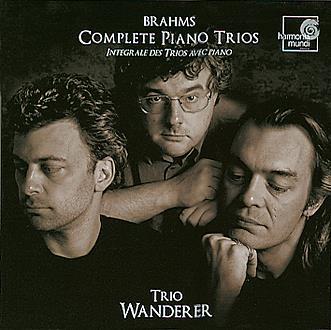
The Strad Issue: January 2006
Musicians: Wanderer Trio, Christophe Gaugué (viola)
Composer: Brahms
While working on the revised version of his First Piano Trio, Brahms commented to Clara Schumann: ‘I have written my B major Trio once more... But will it be better?’ The answer is ‘yes and no’ – the structure is tightened considerably, in line with his later work, yet the yearning innocence and spontaneity of the original op.8 is rather lost in the process. I mention this because it would have been more apposite if the Wanderer Trio had included Brahms’s very different first thoughts or even the spurious A major Trio (still the subject of much contention among Brahms scholars), rather than the much-recorded G minor Piano Quartet, as a coupling for its ‘complete piano trios’ set.
On a purely technical level the Wanderer Trio can hardly be faulted, and producer Jean-Martial Golaz blends warmth and detail ideally for these opulent yet contrapuntally involved masterpieces. All three are stunning players, with violinist Jean-Marc Phillips-Varjabédian and cellist Raphael Pidoux demonstrating an unusual degree of tonal and interpretative sympathy. How you respond to the results will very much depend on your view of Brahms. For a restrained Classical response, the Wanderer Trio is closest to the Beaux Arts on Philips (particularly the latter’s 1960s analogue originals). Yet the sheer physical impact of Brahms’s writing is rather underplayed by the Wanderer’s string players (pianist Vincent Coq appears more prepared to let himself go), especially when compared to the Perlman/Harrell/Ashkenazy EMI set. Finest of all remains the sublime Suk/Starker/Katchen cycle (Decca), which marries the expressive and technical aspects of Brahms’s creative personality to perfection.
JULIAN HAYLOCK




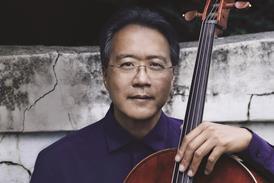




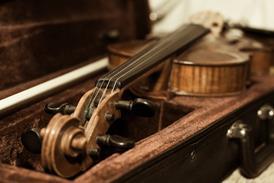
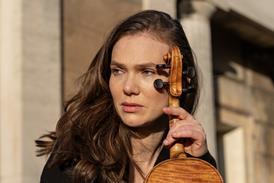
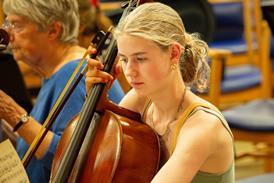




























No comments yet